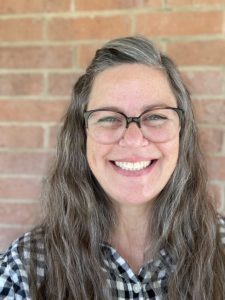Here is a collection of reliable resources to supplement your study of Hosea 1-6; 10-14; Joel. FAIR Resources link to relevant questions which have been answered on the FAIR website. Other Resources link to resources outside of FAIR that are trustworthy and helpful. Under Church Resources you’ll find links to the different Come, Follow Me manuals, as well as other helpful links as applicable. Also on the page are the lesson summary and a guest scholar’s article. This week’s article is by Anna Buis and is titled His Love for Us Is Constant.

Why do we worship or praise God?
Do the Latter-day Saints use praise of God as part of their prayers and songs in worship?
FAIR Questions 2: Recognizing the Voice of the Spirit
Question: Can the Spirit confirm to me that I’m okay to leave the Church?
Find Answers on FAIRLATTERDAYSAINTS.ORG
The Interpreter Foundation
Book of Mormon Central
Come, Follow Me – Old Testament 2022 Homepage
Come Follow Me Insights Tyler Griffin & Taylor Halverson
Daily, Short CFM Videos Various Presenters
A Restored View of the Old Testament Podcast Lynne Wilson & John Cho
Bible Central Website
ScripturePlus Mobile App
BYU Studies
Come, Follow Me 2022 Lessons (Old Testament)
Other Trusted Sources
The Scriptures are Real Podcast
The Scriptures are Real YouTube

Lesson Summary
Israel’s covenant with the Lord was meant to be so deep and meaningful that the Lord compared it to a marriage. The covenant, like a marriage, included eternal commitment, shared experiences, building a life together, exclusive loyalty, and most of all, wholehearted love. This kind of devotion came with high expectations—and tragic consequences for infidelity. Through the prophet Hosea, God described some of the consequences the Israelites faced for breaking their covenant. And yet His message was not “I will reject you forever for being unfaithful.” Instead it was “I will invite you back” (see Hosea 2:14–15). “I will betroth thee unto me in righteousness,” the Lord declared (Hosea 2:19). “I will heal their backsliding, I will love them freely” (Hosea 14:4). This is the same message He gives us today as we seek to live our covenants with love and devotion.
Joel shared a similar message: “Turn unto the Lord your God: for he is gracious and merciful, slow to anger, and of great kindness” (Joel 2:13). “The Lord will be the hope of his people, and the strength of the children of Israel” (Joel 3:16). As you read Hosea and Joel, ponder your own relationship with the Lord. Think about how His faithfulness inspires you to be faithful to Him.
For an overview of the books of Hosea and Joel, see “Hosea, or Hoshea” and “Joel” in the Bible Dictionary.

His Love for Us Is Constant
Despite our best efforts, we will inevitably fall short because we are human. This human experience teaches us that we need the Savior and His atoning sacrifice. His invitation to us is always to return to Him; His love for us is constant. Hosea 14:4 says, “I will heal their backsliding, I will love them freely: for mine anger is turned away from Israel.” We can find comfort in Christ taking action to forgive, heal, and love us individually.
In a journal entry dated April 7, 1844, Wilford Woodruff recorded Sidney Rigdon’s sermon: “Any man, Publicans, sinners, scoundrels or anybody else, could repent & receive the gospel & become a member of the kingdom . . . for when Jesus came he came to call sinners & Harlots into the kingdom. It doesn’t require much of an exertion of the mind; much depends, however, upon the decision of the mind. It depends upon one action of the mind. A man remarked to me He did not belong to a church, was not worthy, but this is a mistake. Jesus Christ came to save sinners. He saves the unworthy. The Lord will offer a man salvation he says he is not worth, but what would you want your son to do if he was unworthy? He should return to his father, so with God.”1
Through the Atonement of Jesus Christ, we all have the opportunity to repent of our sins and turn our hearts and minds to God. Salvation is offered to all, no matter our stature or circumstance. It is up to us to partake of it and follow the Savior. He is always ready and waiting to offer us healing and forgiveness. Wilford Woodruff understood this and preached it wholeheartedly, reminding us that we must be willing to offer to forgive as often as we ask to be forgiven.
Courtesy of Wilford Woodruff Papers – to learn more about the Wilford Woodruff Papers Foundation and how you can support this historic project, please visit wilfordwoodruffpapers.org.
More Come, Follow Me resources here.
Endnotes
Some original text has been edited for clarity and readability.
- Wilford Woodruff’s Journal, April 7, 1844, p. 239, Wilford Woodruff Papers, wilfordwoodruffpapers.org/journal/1844-04-07.

Anna Buis is a graduate of BYU–Idaho, with associate degrees in English and family history and a bachelor degree in interdisciplinary studies with a concentration in family history. She volunteers on the Research and Biography Team for the Wilford Woodruff Papers Project. Researching the lives of the early Saints, among others, has deepened her understanding that God truly loves all of His children. She likes to be with her family, visit art museums, and volunteer in her community.
